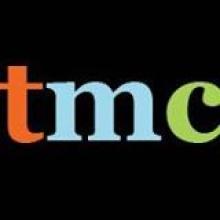You Are Cordially Invited: June 17th Discussion on Cable Companies, Monopolies, and Community Networks
On Tuesday June 17th, Chris will be participating in a conversation hosted by the Media Consortium as part of its Media Policy Reporting and Education Program (MPREP). You are invited to sit in on what is sure to be a spirited discussion on community networks and the lack of competition in the cable industry.
What: Community Fiber Networks: A Realistic Solution to Cable Monopoly?
When: Tuesday, June 17, 3pm ET/ 12 PT
Who: Joining Chris will be:
Ryan Radia, Associate Director for Technology Studies at the Competitive Enterprise Institute. He is critical of government-run or regulated projects in general, and specifically critical of community networks.
Wayne Pyle, City Manager and CEO of West Valley City, Utah's second largest municipality, and also chair of the board of UTOPIA, the Utah Telecommunications Open Infrastructure Agency, a community network serving 11 cities.
This is the first of several monthly briefings hosted by MPREP to discuss media policy issues. Everyone is welcome to participate. Register online for this discussion.



